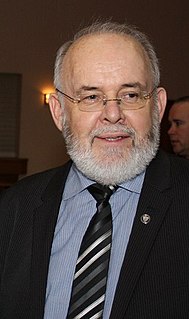
The Ulster Unionist Party (UUP) is a unionist political party in Northern Ireland. Having gathered support in Northern Ireland during the late-nineteenth and early-twentieth centuries, the party governed Northern Ireland between 1921 and 1972. It was supported by most unionist voters throughout the conflict known as the Troubles, during which time it was often referred to as the Official Unionist Party (OUP). Between 1905 and 1972 its MPs took the Conservative whip at Westminster, considered as part of the Conservative Party.
Ulster Protestant Action (UPA) was an Ulster loyalist and Protestant fundamentalist vigilante group in Northern Ireland that was founded in 1956 and reformed as the Protestant Unionist Party in 1966.

The Conservative and Unionist Party, also known as Northern Ireland Conservatives is a section of the United Kingdom's Conservative Party that operates in Northern Ireland. The party won 0.4% of the vote in the Northern Ireland Assembly election, 2016, and 0.3% of the vote in the Northern Ireland Assembly election, 2017.
The Oldham by-election of 1899 occurred in the summer of that year, and involved a by-election to fill both seats in the two-member Oldham Parliamentary borough. The block voting method allowed each elector to vote for two candidates.
Thomas Lorimer Corbett was a British Conservative politician.
The Cleveland by-election, 1902 was a parliamentary by-election held for the House of Commons constituency of Cleveland in the North Riding of Yorkshire on 5 November 1902.
The Rochester by-election, 1903 was a parliamentary by-election held in England in September 1903 for the House of Commons constituency of Rochester in Kent.

A by-election for the UK House of Commons constituency of Mid Ulster in Northern Ireland was held on 7 March 2013. The election was triggered by the resignation of Martin McGuinness, who had been elected to the seat in 1997 as the Sinn Féin candidate. The election was won by Francie Molloy, also of Sinn Féin.
The Whitby by-election was a Parliamentary by-election. It returned one Member of Parliament to the House of Commons of the United Kingdom, elected by the first past the post voting system.

Orkney and Shetland is a constituency of the House of Commons of the Parliament of the United Kingdom. It elects one Member of Parliament (MP) by the first past the post system of election. In the Scottish Parliament, Orkney and Shetland are separate constituencies.

The Hampstead by-election was a Parliamentary by-election. It returned one Member of Parliament to the House of Commons of the United Kingdom, elected by the first past the post voting system.
The 1902 Sevenoaks by-election was held on 21 August 1902 after the appointment of the incumbent Conservative MP Henry Forster as Lord Commissioner of the Treasury. The seat was retained by Forster.
The 1902 Clitheroe by-election was held on 1 August 1902 after the incumbent Liberal MP Sir Ughtred Kay-Shuttleworth was elevated to the British House of Lords. Labour Representation Committee candidate David Shackleton won unopposed.
The Plymouth by-election of 1900 was held on 16 February 1900. The by-election came after the resignation of the incumbent Conservative MP, Sir Edward Clarke. It was won unopposed by the Conservative candidate Hon. Ivor Churchill Guest.
The 1902 Devonport by-election was held on 22 October 1902 after the death of one of the incumbents, Liberal politician E. J. C. Morton. The contest was won by the Conservative Party candidate John Lockie.









